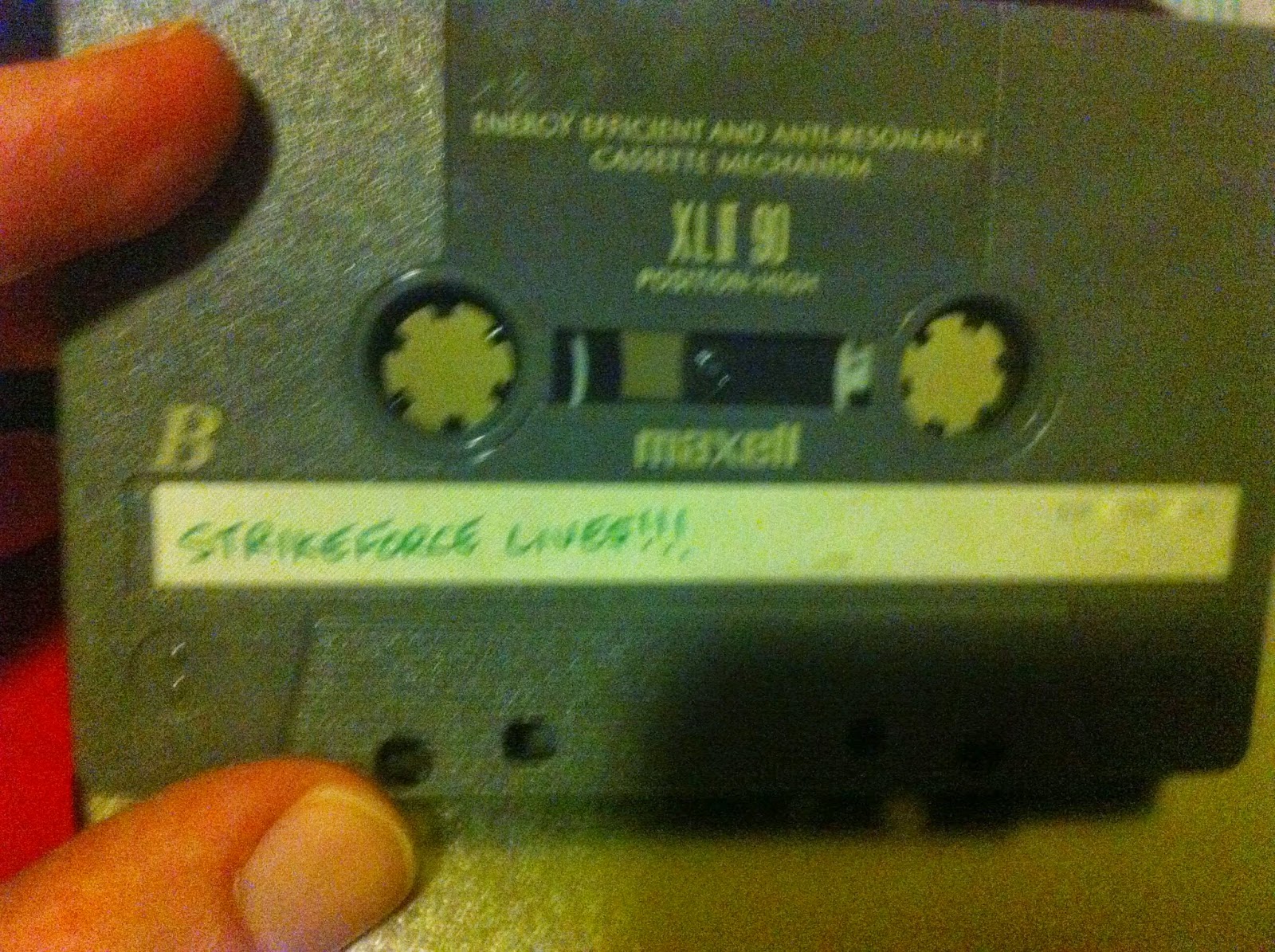Here's a lesson for mixtape makers: a title can go a long way toward capturing a theme. Or at the very least, helping you to remember where a mixtape is from and what it has on it. So when I look at this tape...
I instantly think of Midway Jewish Center, where I learned to fake prayers and got something of an ethical education through stories.
Example: The secretary at a dentist's office tells the two Jewish dentists that her husband is sick and they've run out of insurance money. One dentist cries and commiserates and gives her whatever small cash he has on hand. The other dentist looks at his watch, quickly dashes off a check for 10% of what he made that year, and heads for the door.
Who acted more appropriately for the principles of tzedakah (which we loosely translate as "charity")?
The guy with the check and no tears, because though we often talk tzedakah as charity, the real meaning is closer to "justice" or "fairness." In other words, helping other people isn't about feeling nice or having a big heart; it's doing the fair thing for our fellow humans.
Though I still have no idea why they were dentists."Rabbi Shubert Sings" was a mixtape gift from Jason Kohn, my fellow worker in the Hebrew mines at Midway; Rabbi Shubert was our teacher one year. I believe he might've been the one who made fun of my long hair? Can anyone corroborate that? I remember him saying, "Ben will celebrate getting 100 on this test by getting a haircut."
"Rabbi Shubert Sings" isn't just the name of the mixtape, but the theme for the sides:
Side A: Torah
- Silent Majority, "Arthur Trevor"
- Rocket from the Crypt, "Shucks"
- 108, "Scandal (Live)"
- Mighty Mighty Bosstones, "Noise Brigade"
- Downset, "Anger!"
- Promise Ring, "A Picture Postcard"
- Snuff, "Rivers of Babylon"
- Propagandhi, "The Only Good Fascist is a Very Dead Fascist"
- H2O, "5 Year Plan"
- Against All Authority, "Centerfold"
- Clockwise, "Keep it Together"
- Lifetime, "The Boy's No Good"
- Less Than Jake, "Dopeman (remix)"
- Metroschifter, "$39.00"
- Avail, "Bob's Crew"
- Pietasters, "Girl Take it Easy"
- Shift, "Picturesque
Side B: Haftorah
- Snapcase, "Zombie Prescription"
- Bouncing Souls, "Ballad of Johnny X"
- HiFi and the Roadburners, "Get Outta My Way"
- Chokehold, "Afraid of Life"
- Inside, "Liquify"
- Mr. T Experience, "Even Hitler Had a Girlfriend"
- VOD, "Choke"
- Sleepasaurus, "She Already Has a Boyfriend"
- Lagwagon, "Sick"
- Scofflaws, "Paul Getty" / "PWBA"
- Indecision, "Reconsider"
- Enkindle, "Petose"
- J Church, "Ivy League College"
- Downset, "Sangre de mis Manos"
- Bonus Track!
I'm going to be honest: this mix has some amazing songs; and it probably was in the top 5 most played mixes in my car. And yet, I still don't remember what that "Bonus Track" is.
You'll notice also that Jason's sensibilities at this time, in high school, align pretty well with Mike Pace's: there's your hardcore, like Downset and Snapcase; your punk, like Less Than Jake; your ska and ska-inflected bands, like the Bosstones and Pietasters; and a bunch of more humorous bands, like the Mr. T Experience.
Also, Promise Ring's "A Picture Postcard" deserves to be remembered. At least, I remember walking down the hallway of my freshman dorm at Bard and hearing it come out of a room that I pretty quickly invited myself into.
UPDATE: I have heard the Bonus Track--and transferred it to mp3 thanks to a USB-capable cassette player--and it is...
LL Cool J with "Who's Afraid of the Big Bad Wolf?"






.jpg)











.jpg)

.jpg)
.jpg)
.jpg)